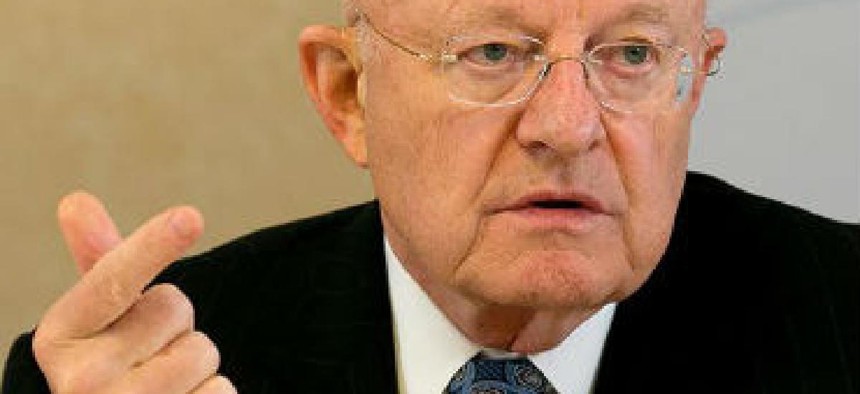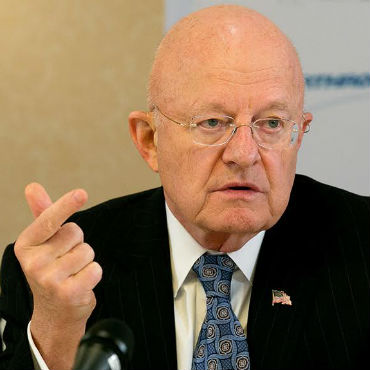Clapper: Russia, nonstate actors emboldened in digital world

Russia has been emboldened by its successful intervention in the 2016 election, and nonstate actors, such as WikiLeaks, are a growing threat in the digital space, said former director of national intelligence James Clapper during a ranging public appearance.

Former National Director of National Intelligence, here shown at an April 2016 media event, warned of the rise in nonstate actors looking to wield influence via cyber espionage.
Russia has been emboldened by its successful intervention in the 2016 election, and nonstate actors, such as WikiLeaks, are a growing threat in the digital space, former director of national intelligence James Clapper said during a ranging public appearance.
At the Gigamon Cybersecurity Summit April 26, Clapper predicted Russia would "no doubt" continue its electoral meddling, lamented the intelligence community's "broken" security clearance system and expressed reason for concern and optimism in the future.
Clapper said cyber was "part of a multifaceted campaign" conducted by the Russians that "represented the most aggressive such activity we've ever seen in their long history of trying to intervene in our election."
"Messing with peoples' elections" -- both domestically and internationally -- "is a characteristic of Russia," he said, pointing to similar attempts currently targeting European elections. "In some cases, it was quite obvious, almost like they wanted us to know about it."
Clapper also applauded CIA director Mike Pompeo's characterization of WikiLeaks, which he said played a role in the Russian election intervention and has leaked CIA and NSA hacking tools, as a "nonstate actor intelligence service."
Clapper said that while nonstate actors tend to have less capability than nation-states, they also lack that constraints of nation-states and tend to have "more nefarious intent."
"The problem is the gap between [state and nonstate cyber capabilities] is narrowing and will continue to do so over time," he said.
However, Clapper noted there are limitations to what government can do in terms of cybersecurity.
Some precautions have also been met with pushback, even within the United States. He specifically pointed to states' "pretty nasty" responses to the Department of Homeland Security's designation of election systems as critical infrastructure as an example of the difficulty in answering, "what is the government responsible for protecting?"
Clapper also lamented the "broken" clearance system for federal employees and contractors, and expressed frustration that his efforts to change it "had a lot of setbacks." He suggested that increased automation would be an effective way "to enhance visibility in the networks" and detect malware and behavioral anomalies of employees and contractors, but acknowledged such aggressive security comes with a cost.
"The thing I do worry about is the impact on people, on the workforce, particularly as we need to attract new young people," he said. "They're going to say, 'you know, there's just too much big brother. That's too much invasiveness and intrusiveness in my life, so I don't think I'm going to work here.'"
Looking to the future, Clapper said that while he has "deliberately" not engaged with his successor Dan Coats since his confirmation, but said, based on discussions after his nomination, "it's my impression he subscribes to the notion of integration" across the intelligence community.


